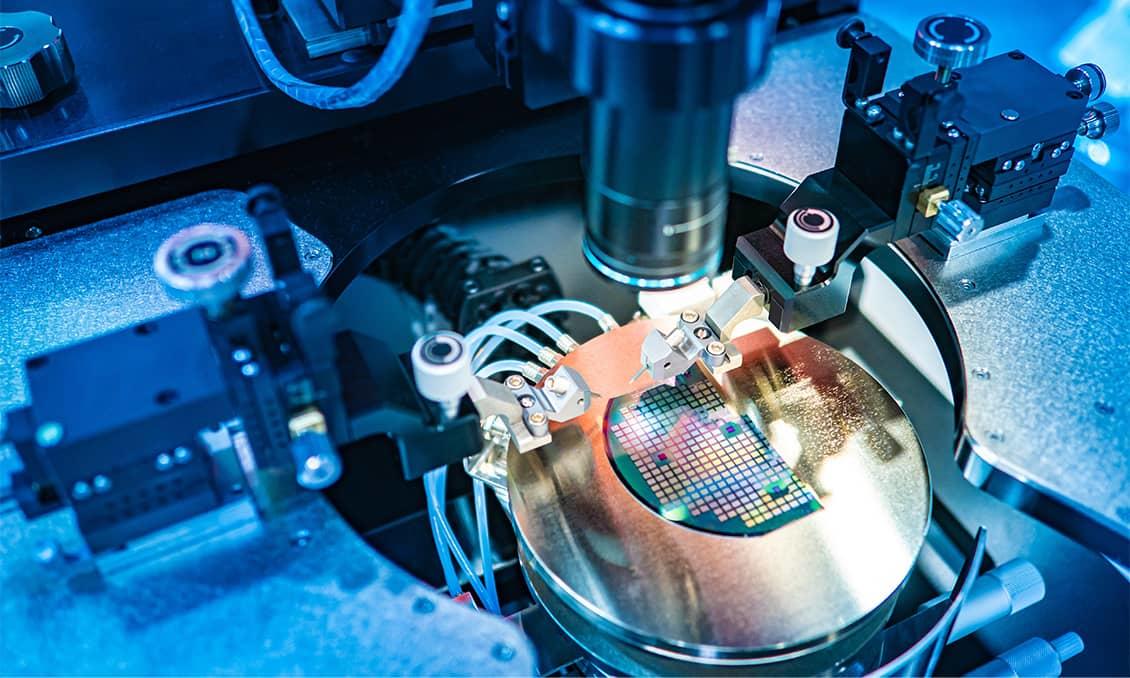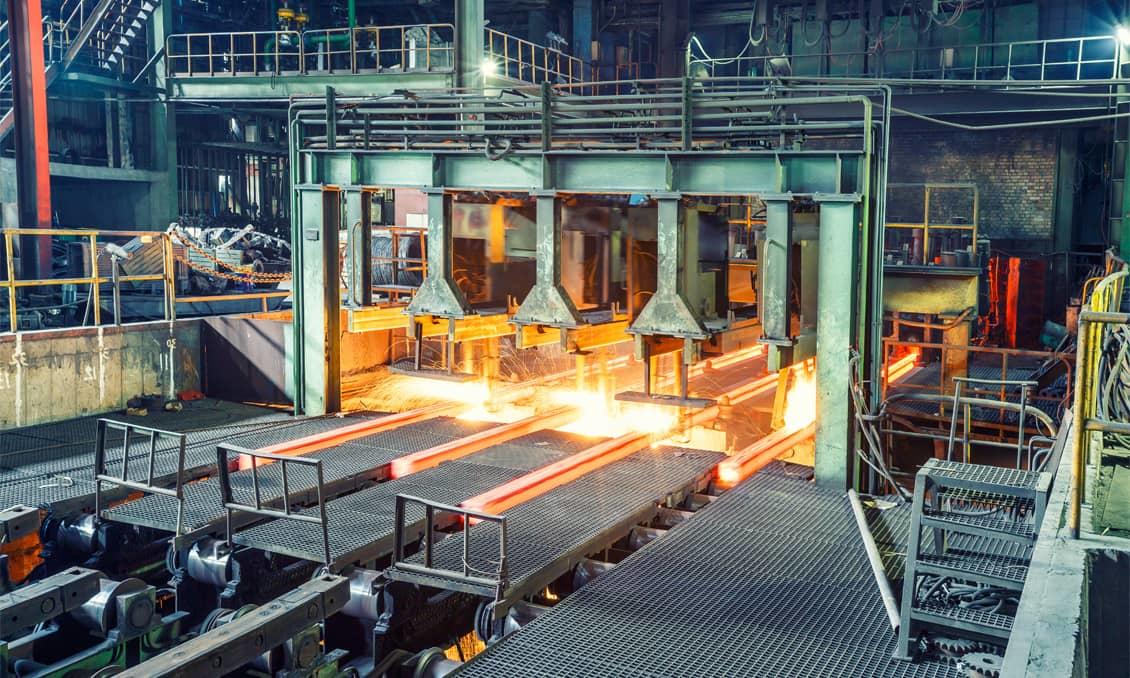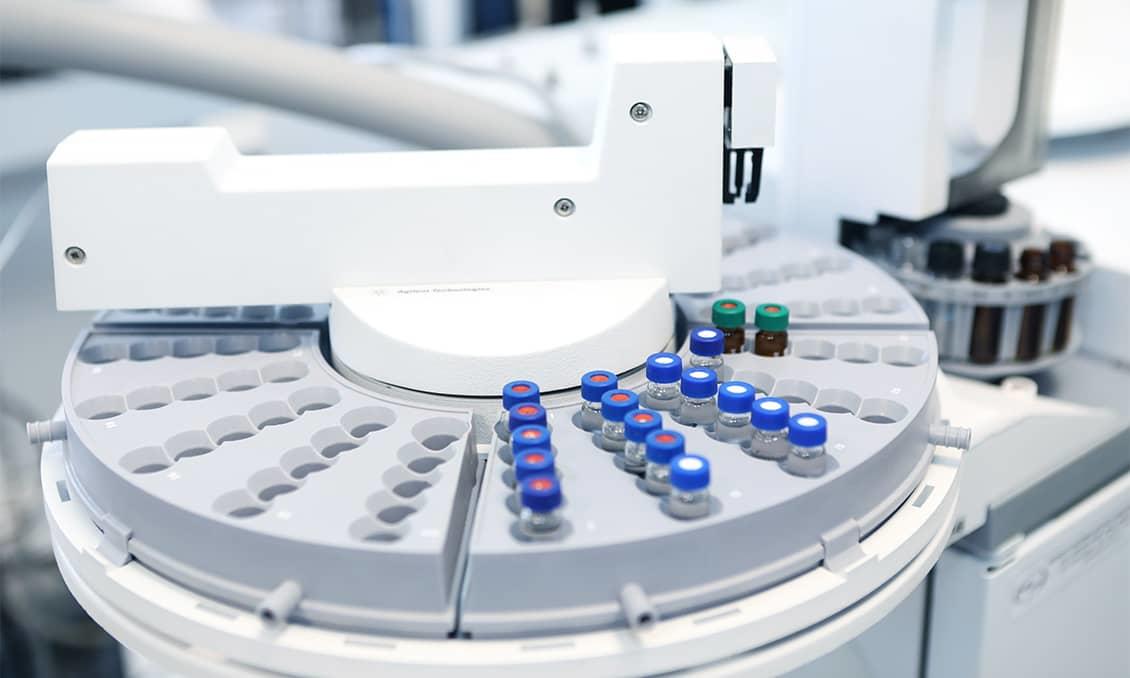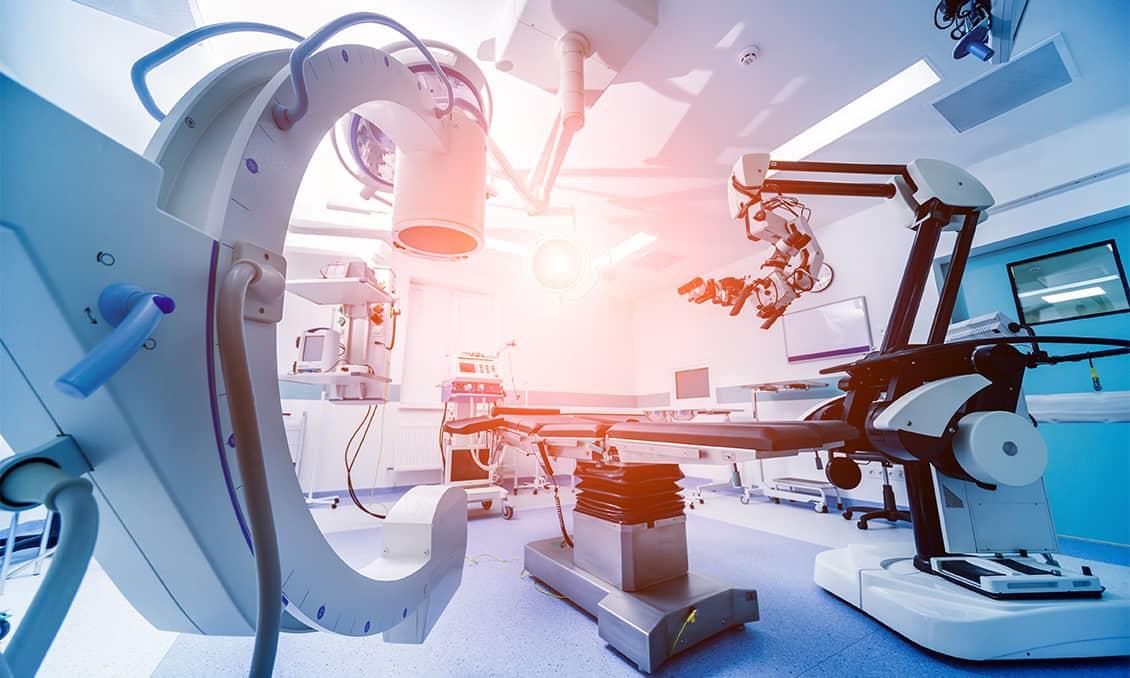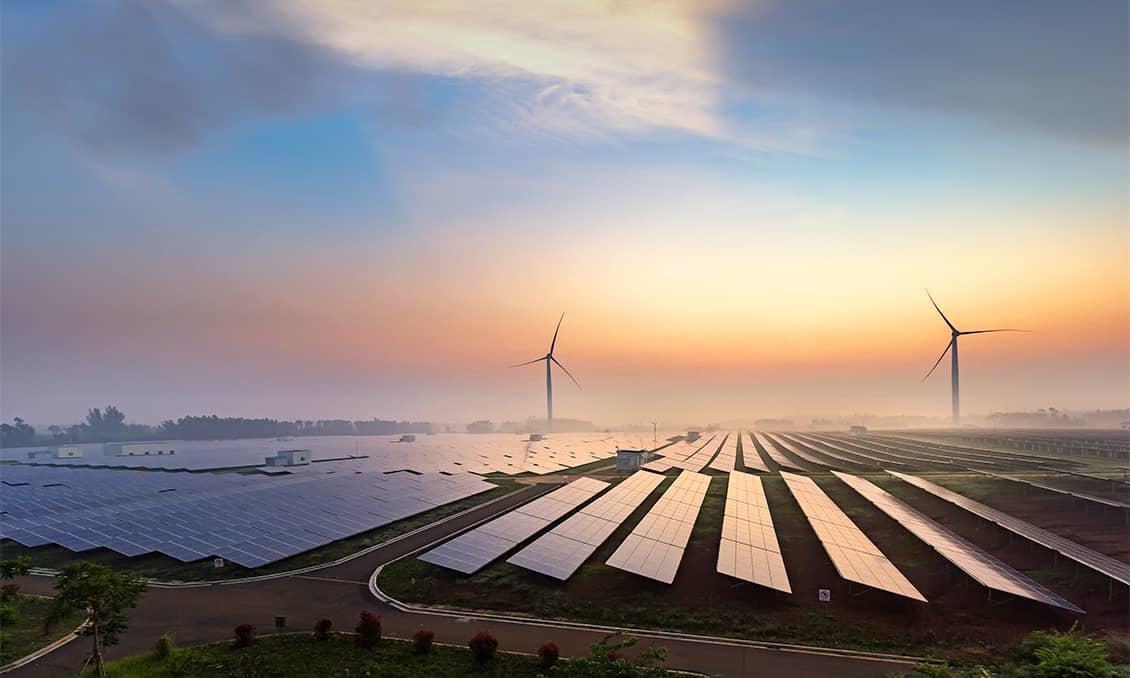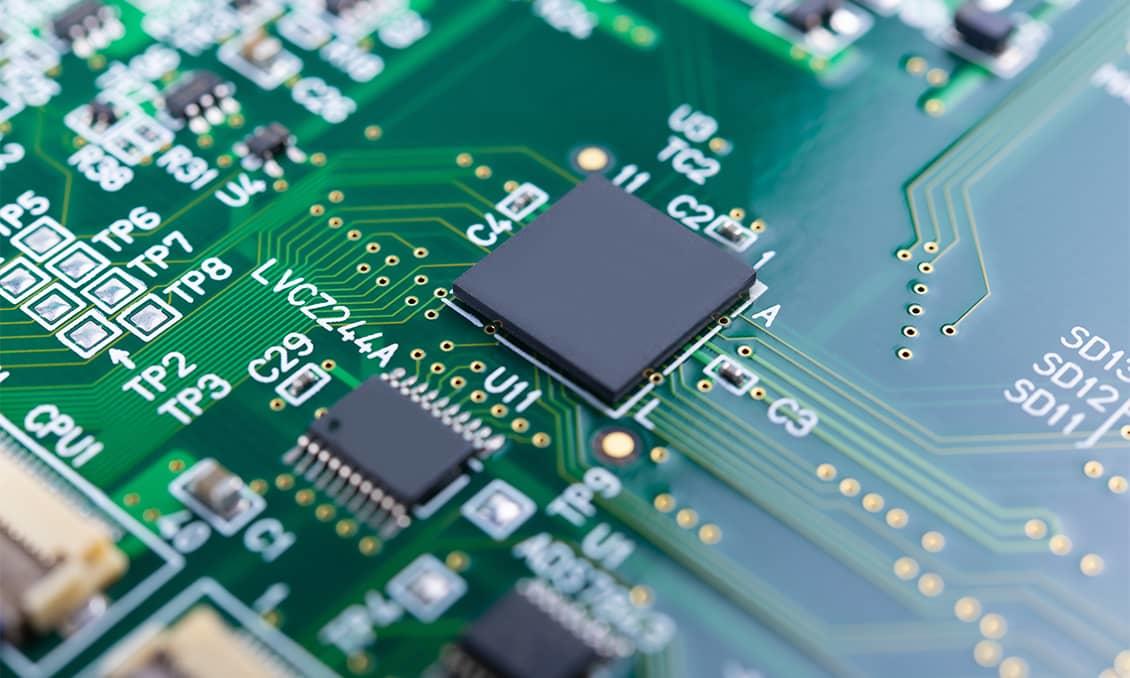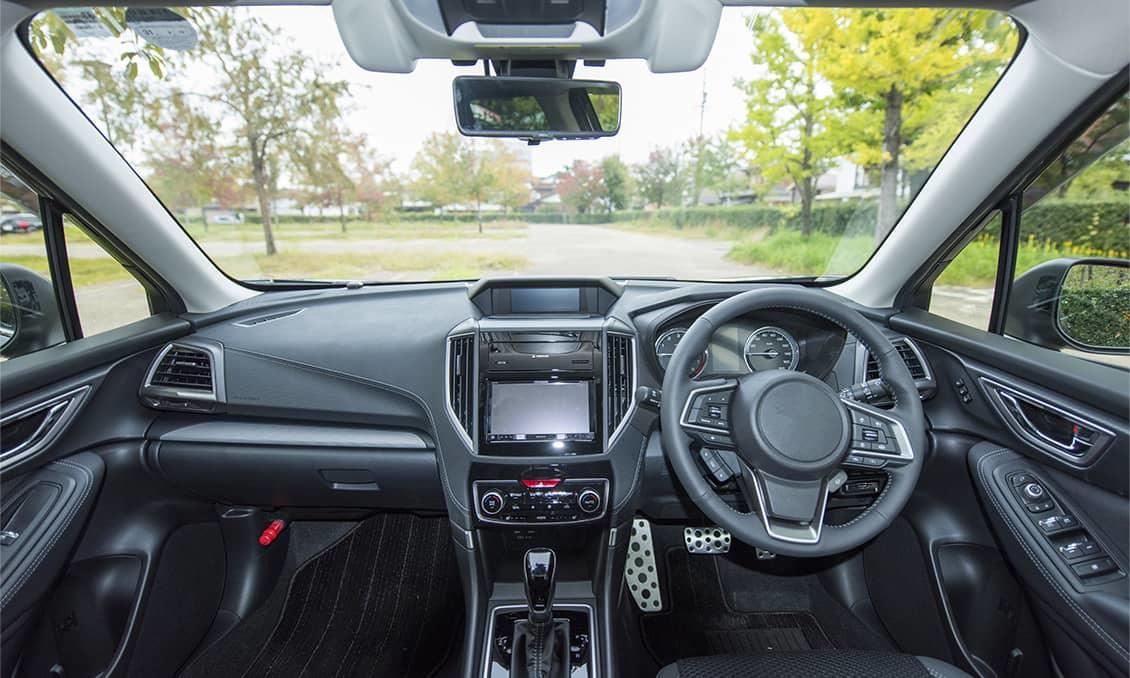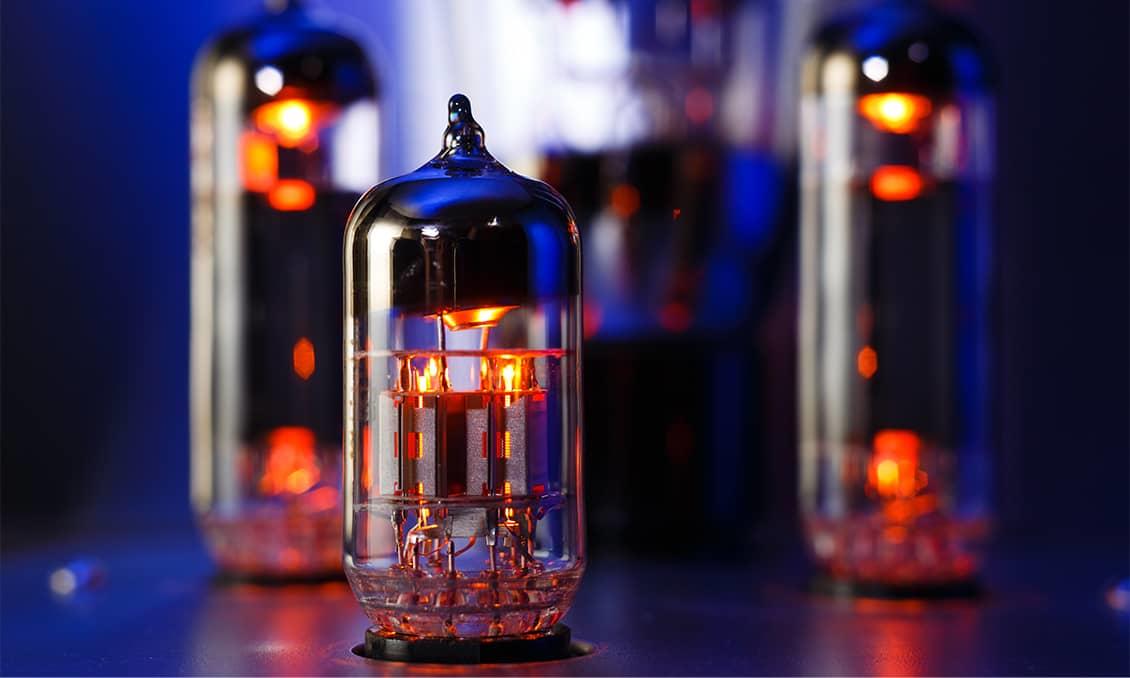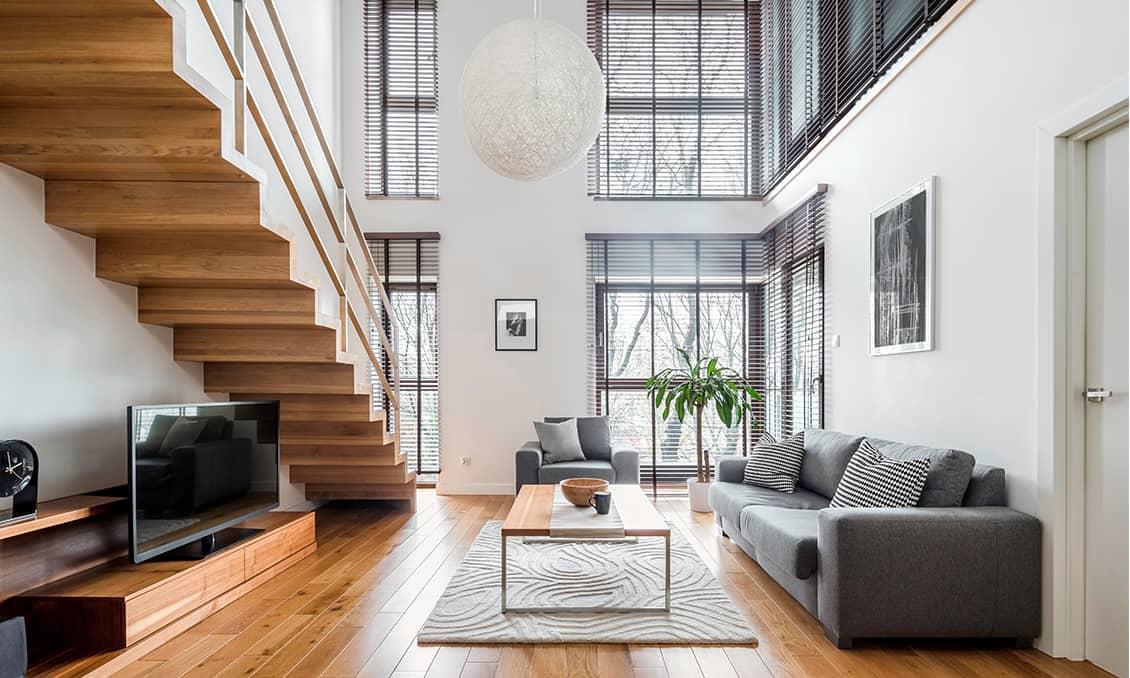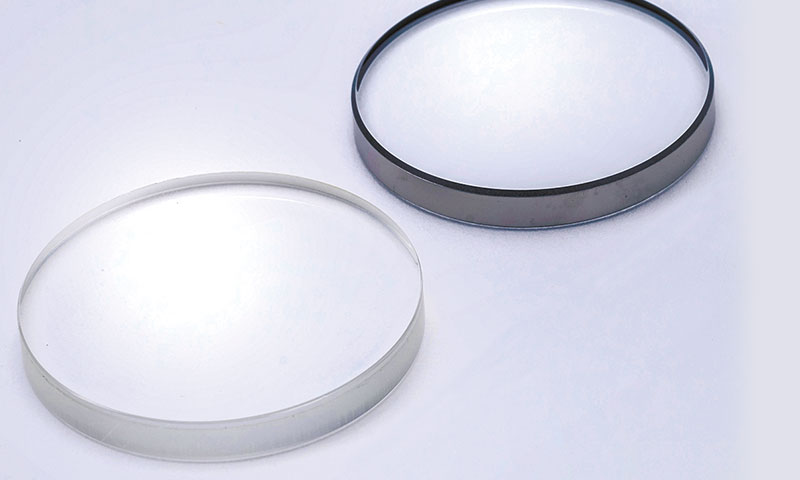Single-crystal sapphire is used in a wide range of industries because it is a highly functional material with many outstanding features, such as thermal, electrical, chemical, and optical properties, in addition to mechanical properties. As optical components, they have high transmittance in a wide range of wavelengths, from ultraviolet to infrared, and are resistant to corrosion and wear. Therefore, they are widely used as observation windows and window components for sensing. Furthermore, with Kyocera's metallization and brazing technology, it is possible to provide products that are bonded with high airtightness to other materials.
Features
The properties of single-crystal sapphire, such as hardness, heat resistance, high thermal conductivity, optical transparency, and chemical resistance, are attracting attention as optical component materials.
HardnessHeat resistanceHigh thermal conductivity
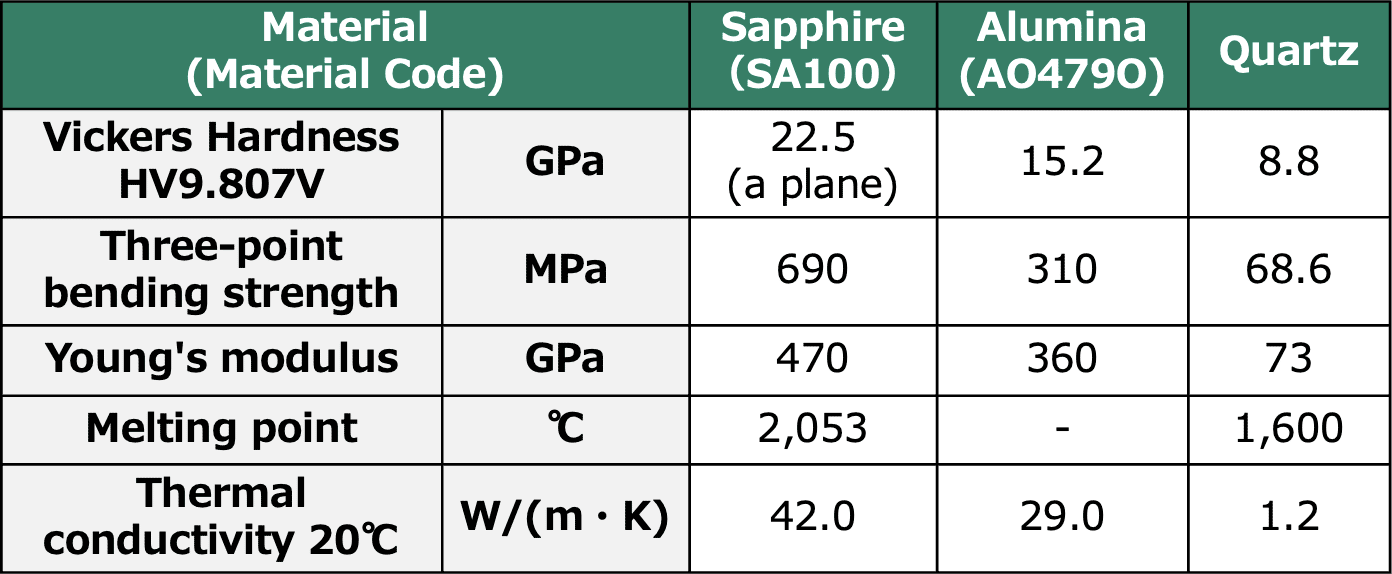
Optical transparency
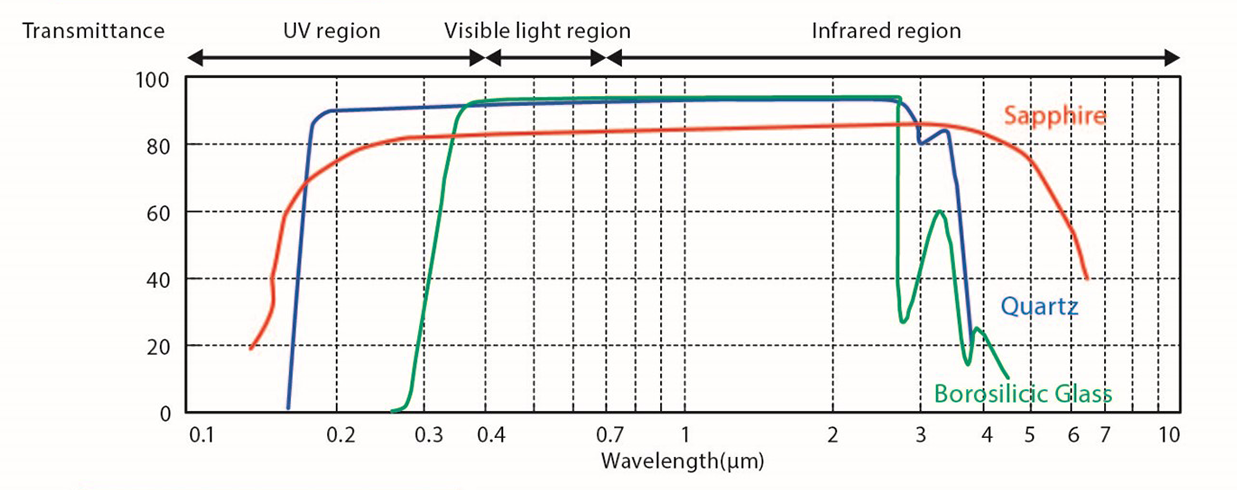
*The above is the transmittance of the sapphire element. Sapphire itself has high optical transparency, but because it is a material with a high refractive index, the above graph includes reflections at the surface. By applying AR coating according to each wavelength, reflection on the surface can be suppressed and transmittance can be further improved.
*The data are reference values and do not guarantee the characteristics of the product.
Chemical resistance
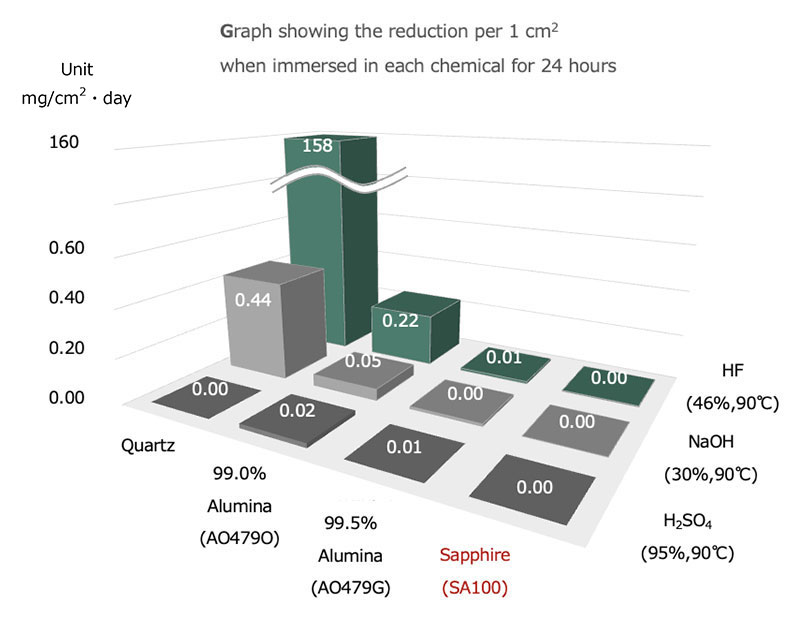
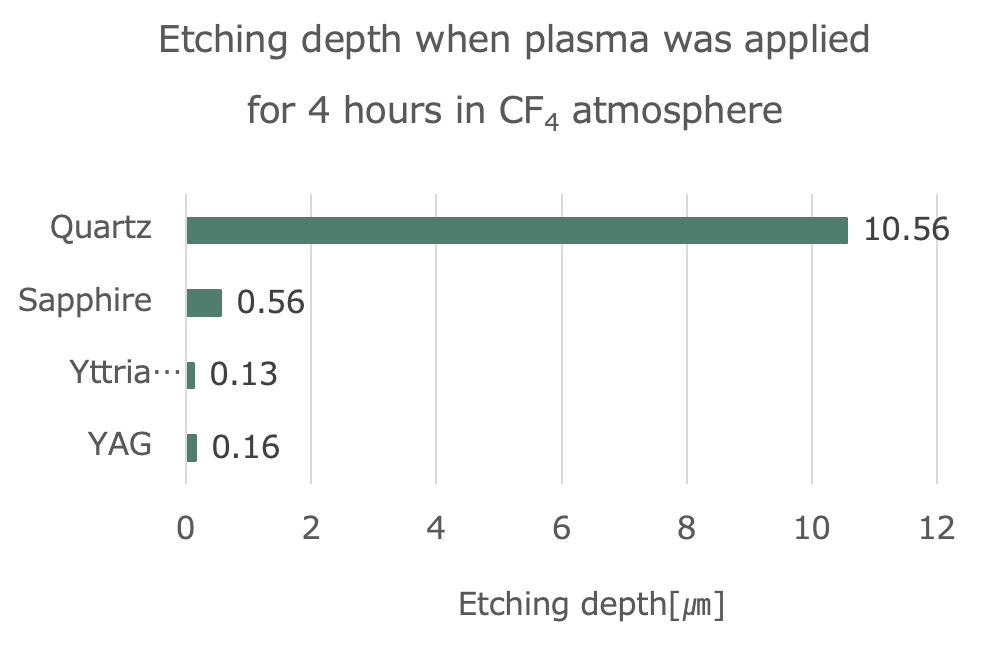
Kyocera's Optical Sapphire Windows
Transmittance in the ultraviolet region
It is possible to produce single-crystal sapphire with stably high transmittance in the wavelength range of deep ultraviolet rays without change of properties.
| Non-countermeasure products | Countermeasure products | |
|---|---|---|
| Transmittance change before and after UV irradiation |
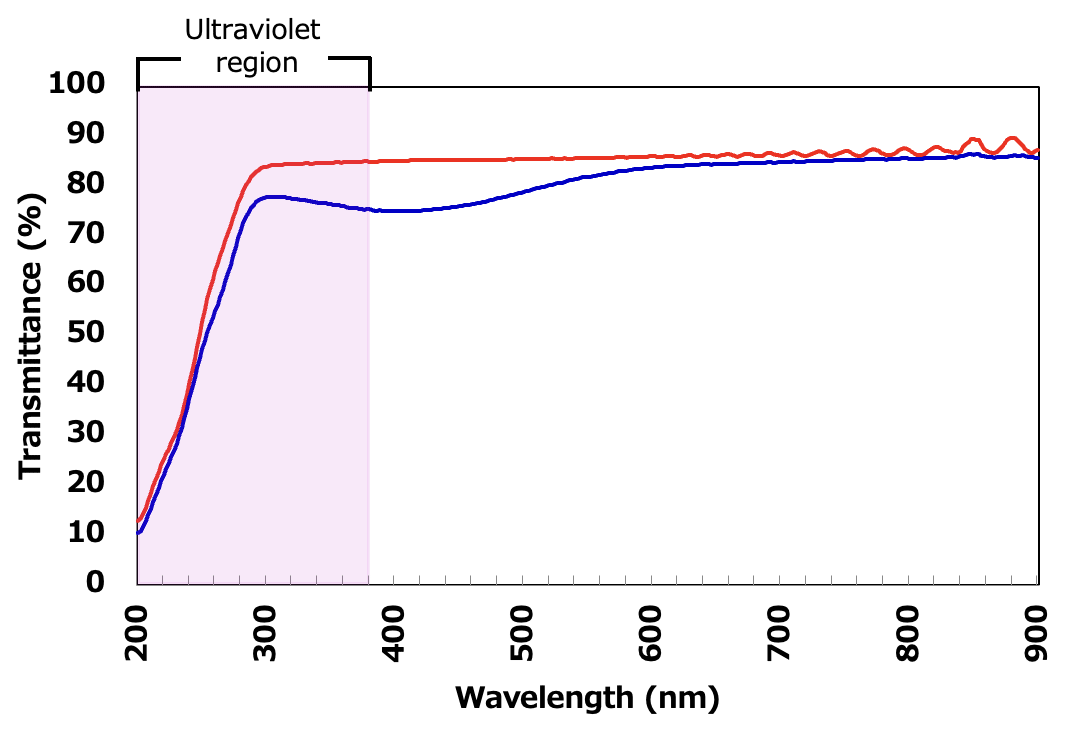 |
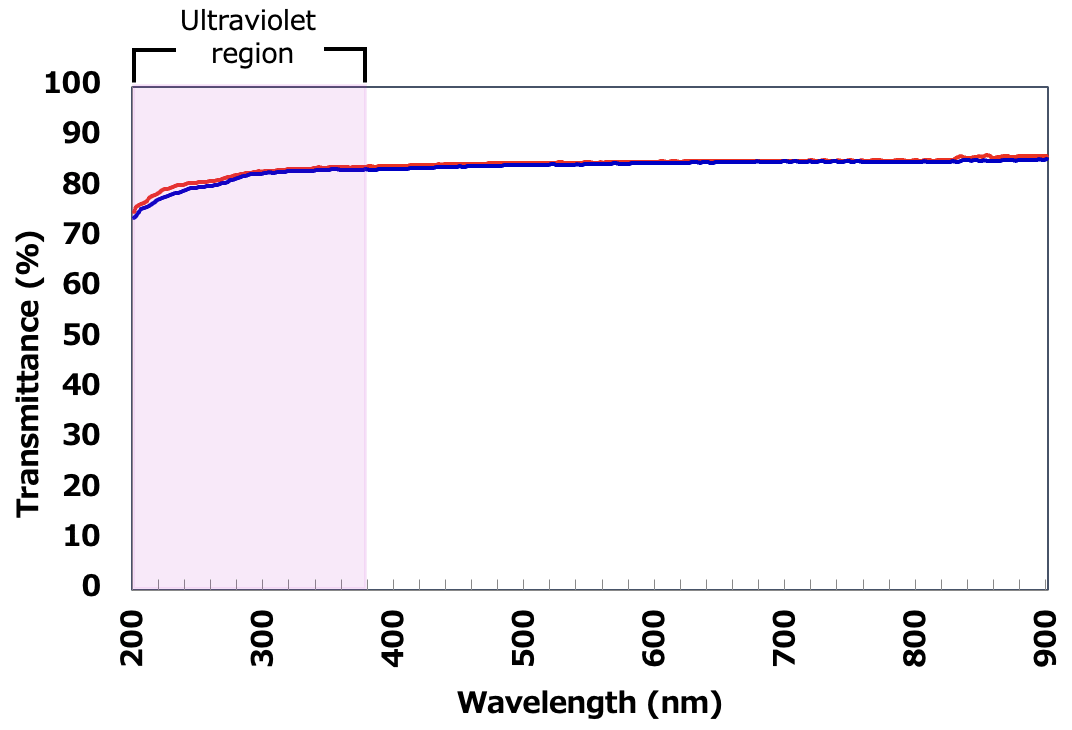 |
━Before UV irradiation ━After UV irradiation
Metallization and brazing between Sapphire and other materials
Metallized sapphire can be brazed to different materials, so it can be used as a part for vacuum devices that require airtightness.
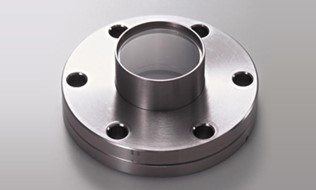
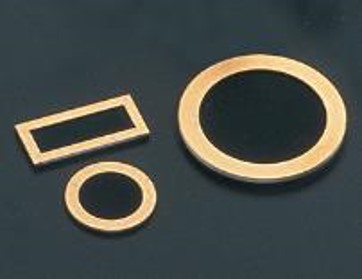
Application Examples
Semiconductor manufacturing device - viewport
Chemical resistanceHeat resistanceSemiconductor manufacturing equipment requires chemical and plasma resistance due to exposure in a plasma atmosphere and the use of highly corrosive chemicals. Heat resistance is also essential when the inside of the device becomes hot.

- Comparative test results of chemical resistance (Gas: CF4+O2 Duration: 1 week)
Comparison photo of appearance after being placed under the above environment
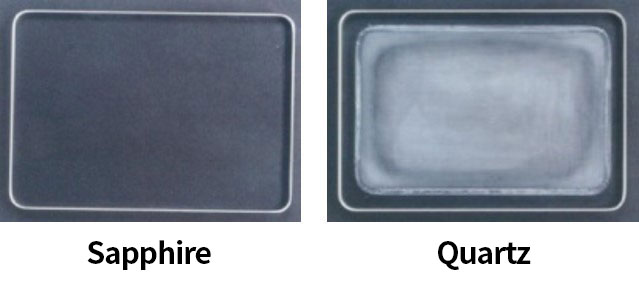

Cashier/Vending Machine - Coin Sensor
HardnessThe window used for coin sensors gradually suffers wear on its sliding surface as coins pass through, hindering the sensor’s response. Therefore, a transparent material with high hardness is required.

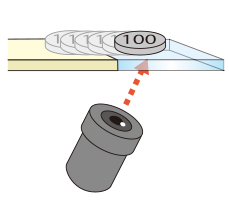
Optical Communication Package - Window
Optical transparencyOptical communication packages use ultraviolet and infrared light to suit the application, so they must be transparent over a wide range of wavelengths. In addition, high airtightness is required to seal the package.
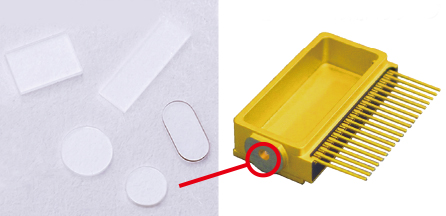

*The data are reference values and do not guarantee the characteristics of the product.
Projector - Heat sink
High thermal conductionOptical windows used for projectors require radiation performance.

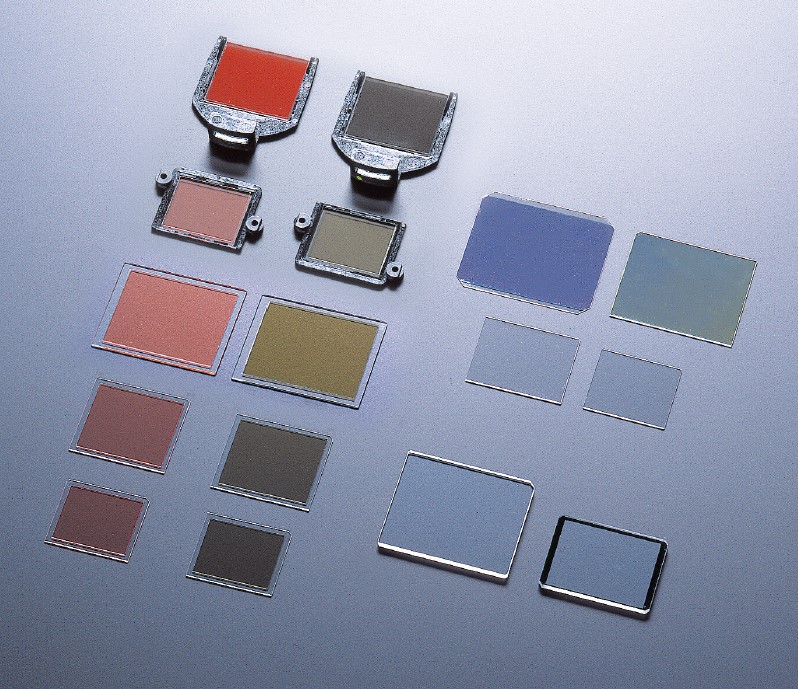
Endoscope - Window
Chemical resistanceOptical transparencyThe tip of the endoscope is sterilized to enter the body. Since chemical solutions for sterilization are highly corrosive, chemical resistance is required. Also, the tip of the arm needs to be sealed. Transmittance in a specific wavelength range is important to observe the affected area at the correct color temperature.
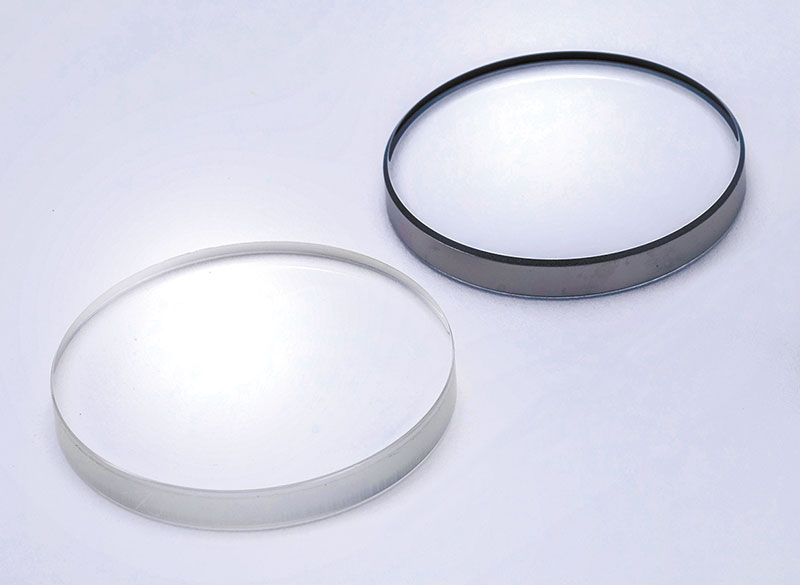
Design Guide
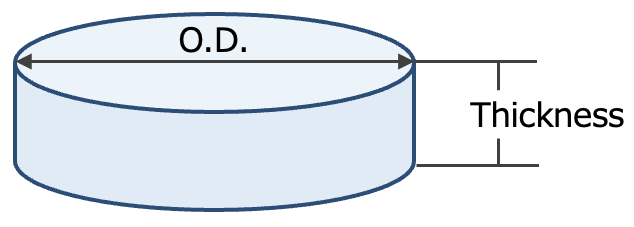

*For orientations other than the above, please consult separately.
*We can also make complex shapes
All values listed on this page are representative values obtained from in-house measurements,
and do not constitute guaranteed product specifications.
